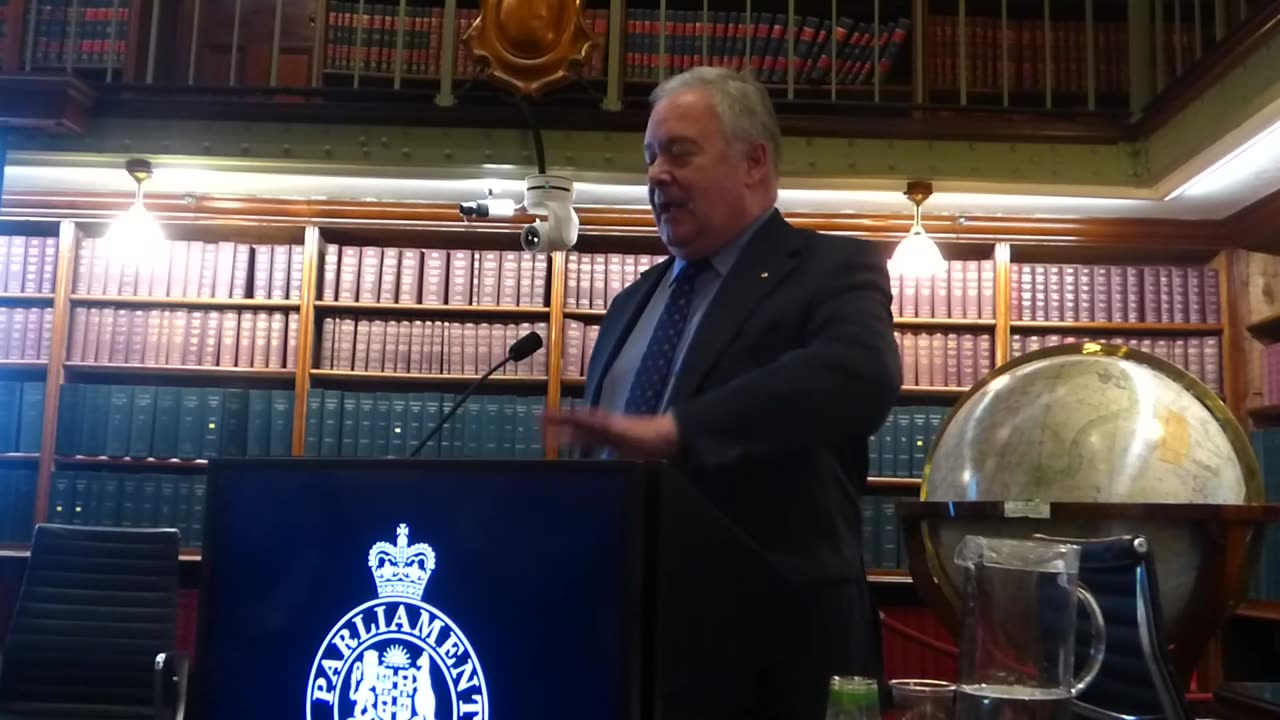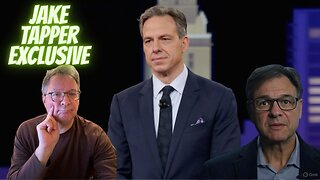Premium Only Content

Question Time: Australia's Defence Preparedness
SUMMARY:
------------------------------
Hey everyone — thanks for the great question in this Defence Preparedness Q&A. I get excited about this topic because it’s one of those big, practical conversations Australia needs to have: could conscription ever return, what would it look like day-to-day, and how does the strategic importance of Taiwan shape our choices? In the clip I unpack the main drivers that would push a government towards compulsory service: the perceived scale of the threat, who’s in power, public sentiment, whether a bipartisan approach can be stitched together, and the enormous logistics of rebuilding training bases and support infrastructure. I explain why Taiwan matters strategically to Australia, how a China-dominated region would shift our security options, and why conscription is more than a political call — it’s an industrial and social project. I also sketch hybrid alternatives: heavier investment in recruitment, voluntary national and community service, targeted call-ups and civil preparedness. It’s hypothetical but grounded — what might everyday life look like under each scenario, who would be affected, and what we’d have to do now to be ready.
RUMBLE DESCRIPTION:
-----------------------------------
Hey folks — thanks for joining this Defence Preparedness Q&A. I’m answering a thoughtful, practical question about conscription: could Australia ever bring back a draft if tensions with China escalate, what might day-to-day life look like, and would women be included? This clip keeps it realistic rather than sensational. I cover the key factors any government would weigh: the scale of the threat, public consent, whether politicians agree on a bipartisan plan, and the massive infrastructure needed to train and house conscripts.
I also explain why Taiwan matters strategically to Australia and how a China-dominated region would reshape our security choices. Conscription isn’t just a legal decision — it requires hundreds of bases, training systems, logistics, and a societal conversation about service. That’s why I talk through alternatives that could be more viable: boosting recruitment, a serious voluntary national and community service scheme, targeted call-ups for specific skills, and stronger civil-defence and preparedness measures.
This is a hypothetical discussion, but a practical one: who would be called, how long for, what happens to everyday life, and what investments Australia needs now to avoid panic later. I want to hear your thoughts — would you support voluntary national service, limited call-ups, or conscription in an extreme scenario? Drop a comment, hit subscribe if you want more deep-dive defence chats, and share the vid if you found it useful. We’ll keep exploring these questions in future episodes.
⚠️ CONTENT DISCLAIMER ⚠️
The views, opinions, and statements expressed in this video are those of the individual speaker(s) and audience members. They do not necessarily reflect the views, opinions, or positions of Western Heritage Australia or its affiliates.
This content is presented for educational and informational purposes as well as to facilitate public discourse on important social and political issues. We provide a platform for diverse Australian voices to be heard, to assist the public in forming their own informed opinions.
Western Heritage Australia does not endorse, verify, or take responsibility for the accuracy of statements made by speakers. All claims, statistics, and opinions remain the responsibility of the original speaker. Viewers are encouraged to conduct their own research and consult multiple sources when forming opinions on these topics.
This video may contain strong political opinions, controversial viewpoints, strong language, or mature themes. Viewer discretion is advised.
-
 37:47
37:47
Welker Farms
1 day ago $2.22 earnedWEIGHT and COST Finally Revealed! Monster BIG BUD!
13.8K8 -
![I Can’t Believe How INTENSE This Got! | [REC] (2007) Reaction](https://1a-1791.com/video/fwe2/5e/s8/1/k/L/j/r/kLjrz.0kob-small-I-Cant-Believe-How-INTENSE-.jpg) 26:54
26:54
SouthernbelleReacts
2 days ago $9.91 earnedI Can’t Believe How INTENSE This Got! | [REC] (2007) Reaction
22.2K2 -
 10:00
10:00
It’s the Final Round
18 hours ago $0.88 earned💰NFL Week 7 Best Bets🔥Player Prop Picks, Parlays, Predictions FREE Today October 19th
13.4K1 -
 15:35
15:35
Demons Row
14 hours ago $2.01 earnedThe Worst Sgt-at-Arms I Ever Met 💀🔥 (and the Mistakes I Made as One)
17.2K5 -
 9:34
9:34
Sideserf Cake Studio
1 day ago $1.16 earned484 Lego Bricks. 1 Hyperrealistic Cake.
14.4K1 -
 22:42
22:42
marcushouse
1 day ago $5.26 earnedMassive Surprises From Starship Flight 11 Revealed! 🤯
18.9K8 -
 14:08
14:08
Forrest Galante
11 hours agoPrivate Tour Of the World's Most Expensive Pet Show
139K10 -
 13:50
13:50
Nikko Ortiz
21 hours agoStop Hurting Yourself For Views.
25.3K12 -
 2:07:06
2:07:06
Side Scrollers Podcast
1 day agoDiaper Furry Streamer Gets ONLY ONE DAY Suspension + Hasan PLAYS VICTIM + More | Side Scrollers
51.7K23 -
 56:38
56:38
DeProgramShow
2 days agoDeprogram with Ted Rall and John Kiriakou: "Jake Tapper on the Global Hunt for an Al Qaeda Killer”
15.3K5